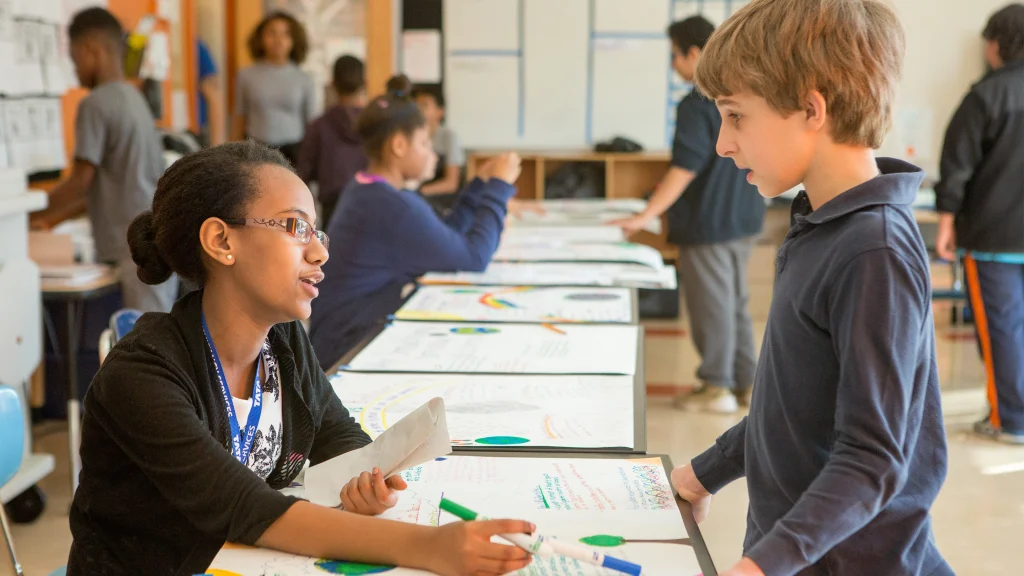Imagine a world where education is not just about memorizing facts and figures but about cultivating a lifelong love for learning and creativity. This is the ethos of experiential learning. It’s an educational philosophy that focuses on learning through experiences and hands-on activities rather than traditional lectures. These activities stimulate a student’s creativity, a vital skill in the contemporary world. Experiential learning is now a critical feature of many best online homeschool programs and can make a significant difference in student development.
Experiential Learning in an Online Homeschool Environment
Online homeschooling has gained popularity over the years, with more families opting for this flexible learning alternative. While some may argue that a physical classroom setting offers better experiential education, a well-designed online homeschool curriculum can offer the same opportunities and more. By leveraging the power of the internet, these programs bring the world to the student’s living room, fostering an environment ripe for creative exploration.
The role of experiential learning in an online homeschool setting is crucial. The best online homeschool curriculums recognize that for students to unleash their creativity, they need to participate actively in their learning journey. They need to explore, experiment, fail, and retry to internalize their learning genuinely. It’s through this hands-on approach that students learn to think critically and solve problems creatively.
Experiential Learning Activities that Foster Creativity
Hands-On Projects
This type of learning is centered around the concept of hands-on projects, which play a vital role in the educational process. These assignments provide students with the opportunity to delve into concepts and ideas in a tangible and practical manner. While reading about the science of light and color offers some level of comprehension, engaging in the creation of a kaleidoscope or a light prism takes learning to a whole new level. By working on such projects, students can witness firsthand how abstract theories materialize into concrete objects, facilitating a deeper understanding and fostering a sense of creativity.
Even in an online homeschooling environment, there are ample opportunities for students to engage in hands-on projects. For instance, they might be tasked with constructing a model ecosystem to gain insights into the delicate balance of nature or coding a basic video game to grasp the fundamentals of computer programming. These projects not only expand their knowledge of the subject matter but also ignite their imagination and nurture their problem-solving skills. When there is active participation in these experiential activities, students are encouraged to think critically, collaborate with others, and apply their theoretical knowledge to real-world scenarios.
Collaborative Group Work
Experiential education not only prioritizes hands-on projects but also underscores the significance of collaborative group work. By engaging in teamwork, students are encouraged to brainstorm ideas, exchange perspectives, and collectively arrive at innovative and creative solutions. This collaborative approach cultivates crucial life skills such as effective communication, empathy, and leadership, which are invaluable in both academic and real-world settings.
Even in an online homeschooling environment, collaborative group work can be seamlessly integrated. Thanks to technological advancements, students can utilize digital platforms to collaborate in real-time. They can share documents, engage in virtual discussions, and even conduct video meetings to coordinate their group projects. These interactive experiences not only facilitate learning but also foster a sense of community among students, despite the physical distance. Through collaboration, students can develop a deeper understanding of diverse viewpoints, learn to appreciate teamwork, and refine their interpersonal skills.
Real-World Problem-Solving Tasks
One of the most significant aspects of experiential learning is its focus on real-world problem-solving tasks. Rather than abstract exercises, students engage with issues that have a direct connection to their lives or their communities. This approach not only makes learning more meaningful but also promotes critical thinking and creativity. For instance, students might explore sustainable living by creating a plan for reducing household waste or investigate local history by conducting interviews and creating a documentary. These real-world problem-solving tasks allow students to apply what they have learned in a meaningful context, stimulating their creativity and deepening their understanding of the subject matter.
Impact of Creativity-Enhancing Experiential Learning on Student Development
Cognitive Development
Through its hands-on and real-world focus, experiential learning fosters cognitive development. Students actively participate in the learning process, which encourages critical thinking and problem-solving skills. Creativity, in turn, complements cognitive development by promoting divergent thinking and encouraging students to approach problems from different angles.
Emotional Development
The role of experiential learning in emotional development cannot be underestimated. Learning through experiences often involves trial and error, teaching students to handle failure and develop resilience. These experiences not only foster emotional growth but also enhance self-confidence. Furthermore, creative activities, such as art or music projects, can be therapeutic and contribute to emotional well-being.
Social Development
Through collaborative group work and community-based projects, experiential learning also contributes to social development. Students learn to communicate effectively, work in teams, and build empathy. They also learn to appreciate diverse perspectives, enhancing their social skills. Creativity, in this context, promotes individual expression and understanding of others, which are essential aspects of social development.
Experiential learning, as a cornerstone of the best online homeschool programs, provides an exceptional avenue for students to explore, create, and grow. In engaging students in hands-on projects, collaborative group work, and real-world problem-solving tasks, experiential learning not only fosters cognitive, emotional, and social development but also cultivates creativity. In a rapidly evolving world, these skills are not just a nice-to-have, but a must-have. Indeed, experiential learning has the power to transform education, making it not only about absorbing information, but also about igniting the creative spark that lies within every student.

